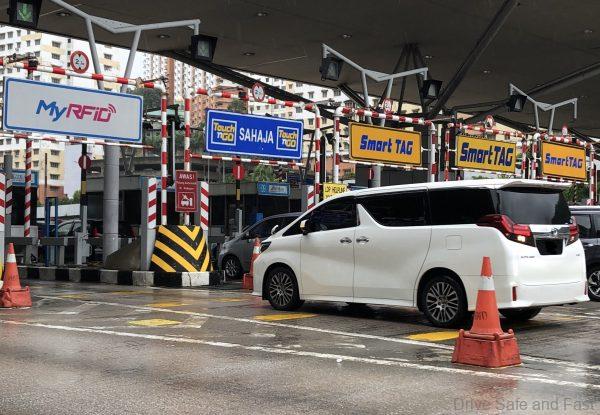All issues with the technology must be ironed out before continuing with the expansion
Senior Works Minister Datuk Seri Fadillah has said that the current implementation of the radio-frequency identification (RFID) technology at toll plazas along the North-South Highway (PLUS) is crucial to ensure that the system works efficiently before its use is expanded.

Speaking at the Dewan Negara, he added that during the trial period, any problems including from the administrative and legal aspects would be identified and resolved so that the system would not become a burden to motorists.
His statement was in response to a supplementary question posed by Senator Datuk Razali Idris, who wanted to know whether the Works Ministry would consider placing the SmartTag and RFID systems under a common lane. Currently, both systems are placed in separate lanes.

“Suppliers for the two toll payment systems were different and as such the technology used was different,” he said, adding that the systems are separated because the tag readers might be ‘confused’ if placed in the same lane.
Replying to a question from Senator Muhammad Zahid Md Arip, who asked whether the Malaysian Highway Authority (LLM) had any legal basis to compel motorists to install RFID at RM35 when the Touch ‘n Go card only costs RM10, Fadillah said motorists are given the option to use RFID and highway authorities are maintaining other payment modes like Touch ‘n Go card and SmartTAG.
He added that RFID is priced at RM35 each, including the cost of tag and installation, but the government had previously asked Touch ‘n Go Sdn Bhd to reduce the price.

Fadillah also said that the Ministry has conducted various studies, engagement and dialogue sessions with the stakeholders to obtain feedback and propose the best solutions to speed up toll payments on highways.
He said that the studies found that RFID has been adopted in many countries for the implementation of Multi-Lane Free Flow (MLFF) system. However, Fadillah said the Ministry will continue to study the effectiveness of RFID compared to existing technologies before making the next decision.
With the imminent implementation of MLFF, Fadillah said the Ministry has also identified the need to track vehicle number plates for the purpose of enforcing toll offenses. Based on records, the number of vehicles detected committing toll trespass offenses from 2016 to 2019 was 1.2 million vehicles, with toll revenue losses incurred by concessionaires estimated at RM23.08 million.